- Home
- Charles Bukowski
Run With the Hunted: A Charles Bukowski Reader Page 2
Run With the Hunted: A Charles Bukowski Reader Read online
Page 2
“Henry picked on Billy,” said Stanley Greenberg.
“Is that right, boys?” asked Mr. Hall.
“Yes,” they said.
Mr. Hall took me by the ear all the way to the principal’s office. He pushed me into a chair in front of an empty desk and then knocked on the principal’s door. He was in there for some time and when he came out he left without looking at me. I sat there five or ten minutes before the principal came out and sat behind the desk. He was a very dignified man with a mass of white hair and a blue bow tie. He looked like a real gentleman. His name was Mr. Knox. Mr. Knox folded his hands and looked at me without speaking. When he did that I was not so sure that he was a gentleman. He seemed to want to humble me, treat me like the others.
“Well,” he said at last, “tell me what happened.”
“Nothing happened.”
“You hurt that boy, Billy Sherril. His parents are going to want to know why.”
I didn’t answer.
“Do you think you can take matters into your own hands when something happens you don’t like?”
“No.”
“Then why did you do it?”
I didn’t answer.
“Do you think you’re better than other people?”
“No.”
Mr. Knox sat there. He had a long letter opener and he slid it back and forth on the green felt padding of the desk. He had a large bottle of green ink on his desk and a pen holder with four pens. I wondered if he would beat me.
“Then why did you do what you did?”
I didn’t answer. Mr. Knox slid the letter opener back and forth. The phone rang. He picked it up.
“Hello? Oh, Mrs. Kirby? He what? What? Listen, can’t you administer the discipline? I’m busy now. All right, I’ll phone you when I’m done with this one …”
He hung up. He brushed his fine white hair back out of his eyes with one hand and looked at me.
“Why do you cause me all this trouble?”
I didn’t answer him.
“You think you’re tough, huh?”
I kept silent.
“Tough kid, huh?”
There was a fly circling Mr. Knox’s desk. It hovered over his green ink bottle. Then it landed on the black cap of the ink bottle and sat there rubbing its wings.
“O.K., kid, you’re tough and I’m tough. Let’s shake hands on that.”
I didn’t think I was tough so I didn’t give him my hand.
“Come on, give me your hand.”
I stretched my hand out and he took it and began shaking it. Then he stopped shaking it and looked at me. He had blue clear eyes lighter than the blue of his bow tie. His eyes were almost beautiful. He kept looking at me and holding my hand. His grip began to tighten.
“I want to congratulate you for being a tough guy.”
His grip tightened some more.
“Do you think I’m a tough guy?”
I didn’t answer.
He crushed the bones of my fingers together. I could feel the bone of each finger cutting like a blade into the flesh of the finger next to it. Shots of red flashed before my eyes.
“Do you think I’m a tough guy?” he asked.
“I’ll kill you,” I said.
“You’ll what?”
Mr. Knox tightened his grip. He had a hand like a vise. I could see every pore in his face.
“Tough guys don’t scream, do they?”
I couldn’t look at his face anymore. I put my face down on the desk.
“Am I a tough guy?” asked Mr. Knox.
He squeezed harder. I had to scream, but I kept it as quiet as possible so no one in the classes could hear me.
“Now, am I a tough guy?”
I waited. I hated to say it. Then I said, “Yes.”
Mr. Knox let go of my hand. I was afraid to look at it. I let it hang by my side. I noticed that the fly was gone and I thought, it’s not so bad to be a fly. Mr. Knox was writing on a piece of paper.
“Now, Henry, I’m writing a little note to your parents and I want you to deliver it to them. And you will deliver it to them, won’t you?”
“Yes.”
He folded the note into an envelope and handed it to me. The envelope was sealed and I had no desire to open it.
—HAM ON RYE
we ain’t got no money, honey, but we got rain
call it the greenhouse effect or whatever
but it just doesn’t rain like it
used to.
I particularly remember the rains of the
depression era.
there wasn’t any money but there was
plenty of rain.
it wouldn’t rain for just a night or
a day,
it would RAIN for 7 days and 7
nights
and in Los Angeles the storm drains
weren’t built to carry off that much
water
and the rain came down THICK and
MEAN and
STEADY
and you HEARD it banging against
the roofs and into the ground
waterfalls of it came down
from the roofs
and often there was HAIL
big ROCKS OF ICE
bombing
exploding
smashing into things
and the rain
just wouldn’t
STOP
and all the roofs leaked—
dishpans,
cooking pots
were placed all about;
they dripped loudly
and had to be emptied
again and
again.
the rain came up over the street curbings,
across the lawns, climbed the steps and
entered the houses.
there were mops and bathroom towels,
and the rain often came up through the
toilets: bubbling, brown, crazy, whirling,
and the old cars stood in the streets,
cars that had problems starting on a
sunny day,
and the jobless men stood
looking out the windows
at the old machines dying
like living things
out there.
the jobless men,
failures in a failing time
were imprisoned in their houses with their
wives and children
and their
pets.
the pets refused to go out
and left their waste in
strange places.
the jobless men went mad
confined with
their once beautiful wives.
there were terrible arguments
as notices of foreclosure
fell into the mailbox.
rain and hail, cans of beans,
bread without butter; fried
eggs, boiled eggs, poached
eggs; peanut butter
sandwiches, and an invisible
chicken
in every pot.
my father, never a good man
at best, beat my mother
when it rained
as I threw myself
between them,
the legs, the knees, the
screams
until they
separated.
“I’ll kill you,” I screamed
at him. “You hit her again
and I’ll kill you!”
“Get that son-of-a-bitching
kid out of here!”
“no, Henry, you stay with
your mother!”
all the households were under
siege but I believe that ours
held more terror than the
average.
and at night
as we attempted to sleep
the rains still came down
and it was in bed
in the dark
watching the moon against
the scarred window
so bravely
holding out
most of the rain,
I thought of Noah and the
Ark
and I thought, it has come
again.
we all thought
that.
and then, at once, it would
stop.
and it always seemed to
stop
around 5 or 6 a.m.,
peaceful then,
but not an exact silence
because things continued to
drip
drip
drip
and there was no smog then
and by 8 a.m.
there was a
blazing yellow sunlight,
Van Gogh yellow—
crazy, blinding!
and then
the roof drains
relieved of the rush of
water
began to expand in
the warmth:
PANG! PANG! PANG!
and everybody got up
and looked outside
and there were all the lawns
still soaked
greener than green will ever
be
and there were the birds
on the lawn
CHIRPING like mad,
they hadn’t eaten decently
for 7 days and 7 nights
and they were weary of
berries
and
they waited as the worms
rose to the top,
half-drowned worms.
the birds plucked them
up
and gobbled them
down; there were
blackbirds and sparrows.
the blackbirds tried to
drive the sparrows off
but the sparrows,
maddened with hunger,
smaller and quicker,
got their
due.
the men stood on their porches
smoking cigarettes,
now knowing
they’d have to go out
there
to look for that job
that probably wasn’t
there, to start that car
that probably wouldn’t
start.
and the once beautiful
wives
stood in their bathrooms
combing their hair,
applying makeup,
trying to put their world back
together again,
trying to forget that
awful sadness that
gripped them,
wondering what they could
fix for
breakfast.
and on the radio
we were told that
school was now
open.
and
soon
there I was
on the way to school,
massive puddles in the
street,
the sun like a new
world,
my parents back in that
house,
I arrived at my classroom
on time.
Mrs. Sorenson greeted us
with, “we won’t have our
usual recess, the grounds
are too wet.”
“AW!” most of the boys
went.
“but we are going to do
something special at
recess,” she went on,
“and it will be
fun!”
well, we all wondered
what that would
be
and the two hour wait
seemed a long time
as Mrs. Sorenson
went about
teaching her
lessons.
I looked at the little
girls, they all looked so
pretty and clean and
alert,
they sat still and
straight
and their hair was
beautiful
in the California
sunshine.
then the recess bell rang
and we all waited for the
fun.
then Mrs. Sorenson told
us:
“now, what we are going to
do is we are going to tell
each other what we did
during the rainstorm!
we’ll begin in the front
row and go right around!
now, Michael, you’re
first! …”
well, we all began to tell
our stories, Michael began
and it went on and on,
and soon we realized that
we were all lying, not
exactly lying but mostly
lying and some of the boys
began to snicker and some
of the girls began to give
them dirty looks and
Mrs. Sorenson said,
“all right, I demand a
modicum of silence
here!
I am interested in what
you did
during the rainstorm
even if you
aren’t!”
so we had to tell our
stories and they were
stories.
one girl said that
when the rainbow first
came
she saw God’s face
at the end of it.
only she didn’t say
which end.
one boy said he stuck
his fishing pole
out the window
and caught a little
fish
and fed it to his
cat.
almost everybody told
a lie.
the truth was just
too awful and
embarrassing to
tell.
then the bell rang
and recess was
over.
“thank you,” said Mrs.
Sorenson, “that was very
nice.
and tomorrow the grounds
will be dry
and we will put them
to use
again.”
most of the boys
cheered
and the little girls
sat very straight and
still,
looking so pretty and
clean and
alert,
their hair beautiful
in a sunshine that
the world might
never see
again.
One night my father took me on his milk route. There were no longer any horsedrawn wagons. The milk trucks now had engines. After loading up at the milk company we drove off on his route. I liked being out in the very early morning. The moon was up and I could see the stars. It was cold but it was exciting. I wondered why my father had asked me to come along since he had taken to beating me with the razor strop once or twice a week and we weren’t getting along.
At each stop he would jump out and deliver a bottle or two of milk. Sometimes it was cottage cheese or buttermilk or butter and now and then a bottle of orange juice. Most of the people left notes in the empty bottles explaining what they wanted.
My father drove along, stopping and starting, making deliveries.
“O.K., kid, which direction are we driving in now?”
“North.”
“You’re right. We’re going north.”
We went up and down streets, stopping and starting.
“O.K., which way are we going now?”
“West.”
“No, we’re going south.”
We drove along in silence some more.
“Suppose I pushed you out of the truck now and left you on the sidewal
k, what would you do?”
“I don’t know.”
“I mean, how would you live?”
“Well, I guess I’d go back and drink the milk and orange juice you just left on the porch steps.”
“Then what would you do?”
“I’d find a policeman and tell him what you did.”
“You would, huh? And what would you tell him?”
“I’d tell him that you told me that ‘west’ was ‘south’ because you wanted me to get lost.”
It began to get light. Soon all the deliveries were made and we stopped at a cafe to have breakfast. The waitress walked over. “Hello, Henry,” she said to my father. “Hello, Betty.” “Who’s the kid?” asked Betty. “That’s little Henry.” “He looks just like you.” “He doesn’t have my brains, though.” “I hope not.”
We ordered. We had bacon and eggs. As we ate my father said, “Now comes the hard part.”
“What is that?”
“I have to collect the money people owe me. Some of them don’t want to pay.”
“They ought to pay.”
“That’s what I tell them.”
We finished eating and started driving again. My father got out and knocked on doors. I could hear him complaining loudly, “HOW THE HELL DO YOU THINK I’M GOING TO EAT? YOU’VE SUCKED UP THE MILK, NOW IT’S TIME FOR YOU TO SHIT OUT THE MONEY!”
He used a different line each time. Sometimes he came back with the money, sometimes he didnt.
Then I saw him enter a court of bungalows. A door opened and a woman stood there dressed in a loose silken kimono. She was smoking a cigarette. “Listen, baby, I’ve got to have the money. You’re into me deeper than anybody!”
She laughed at him.
“Look, baby, just give me half, give me a payment, something to show.”
She blew a smoke ring, reached out and broke it with her finger.
“Listen, you’ve got to pay me,” my father said. “This is a desperate situation.”
“Come on in. We’ll talk about it,” said the woman.
My father went in and the door closed. He was in there for a long time. The sun was really up. When my father came out his hair was hanging down around his face and he was pushing his shirt tail into his pants. He climbed into the truck.
“Did that woman give you the money?” I asked.
“That was the last stop,” said my father. “I can’t take it any more. We’ll return the truck and go home …”
I was to see that woman again. One day I came home after school and she was sitting on a chair in the front room of our house. My mother and father were sitting there too and my mother was crying. When my mother saw me she stood up and ran toward me, grabbed me. She took me into the bedroom and sat me on the bed. “Henry, do you love your mother?” I really didn’t but she looked so sad that I said, “Yes.” She took me back into the other room.

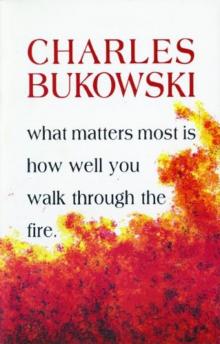 Burning in Water, Drowning in Flame
Burning in Water, Drowning in Flame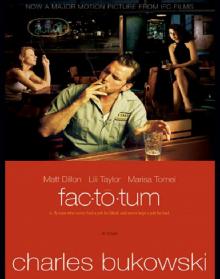 Factotum
Factotum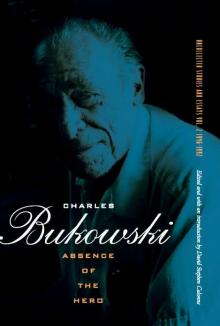 Absence of the Hero
Absence of the Hero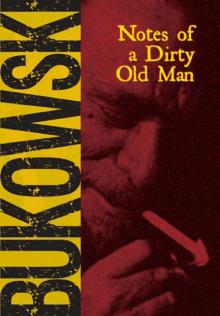 Notes of a Dirty Old Man
Notes of a Dirty Old Man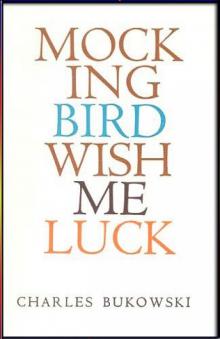 Mockingbird Wish Me Luck
Mockingbird Wish Me Luck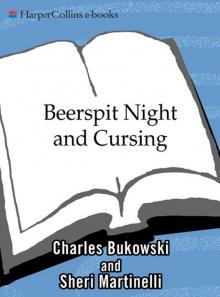 Beerspit Night and Cursing
Beerspit Night and Cursing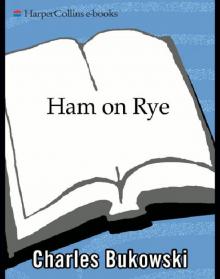 Ham on Rye: A Novel
Ham on Rye: A Novel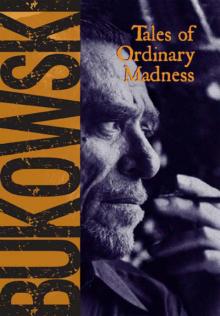 Tales of Ordinary Madness
Tales of Ordinary Madness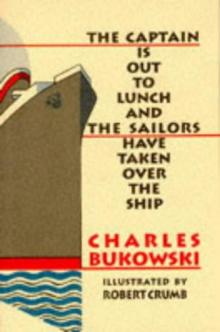 The Captain Is Out to Lunch and the Sailors Have Taken Over the Ship
The Captain Is Out to Lunch and the Sailors Have Taken Over the Ship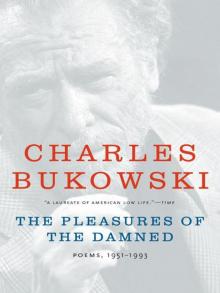 The Pleasures of the Damned
The Pleasures of the Damned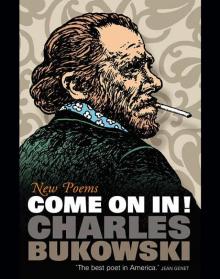 Come on In!
Come on In!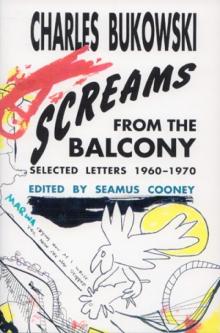 Screams From the Balcony
Screams From the Balcony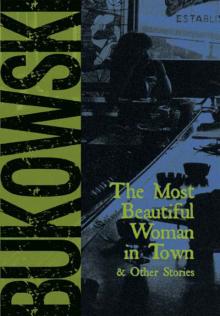 The Most Beautiful Woman in Town & Other Stories
The Most Beautiful Woman in Town & Other Stories New Poems Book 3
New Poems Book 3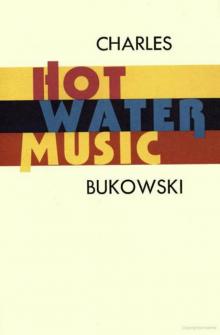 Hot Water Music
Hot Water Music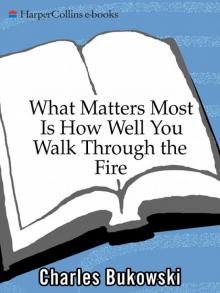 What Matters Most Is How Well You Walk Through the Fire
What Matters Most Is How Well You Walk Through the Fire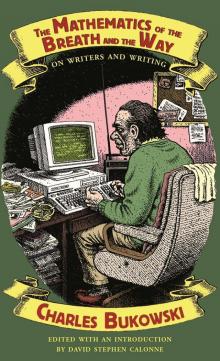 The Mathematics of the Breath and the Way
The Mathematics of the Breath and the Way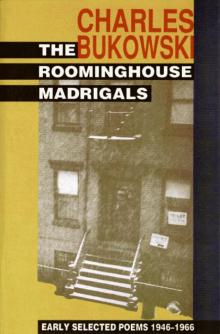 The Roominghouse Madrigals: Early Selected Poems, 1946-1966
The Roominghouse Madrigals: Early Selected Poems, 1946-1966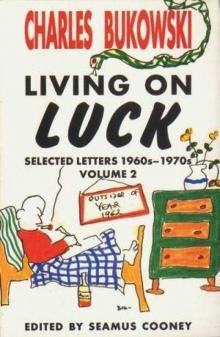 Living on Luck
Living on Luck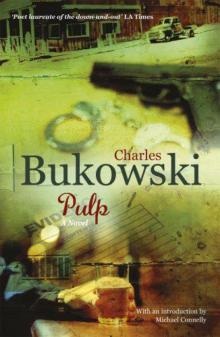 Pulp
Pulp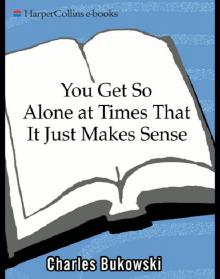 You Get So Alone at Times That It Just Makes Sense
You Get So Alone at Times That It Just Makes Sense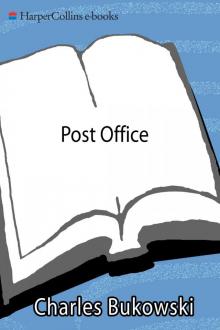 Post Office: A Novel
Post Office: A Novel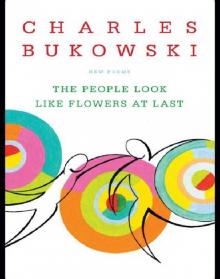 The People Look Like Flowers at Last: New Poems
The People Look Like Flowers at Last: New Poems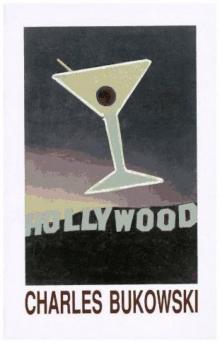 Hollywood
Hollywood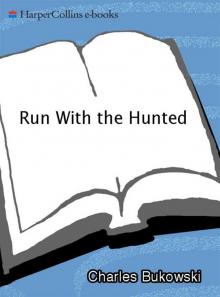 Run With the Hunted: A Charles Bukowski Reader
Run With the Hunted: A Charles Bukowski Reader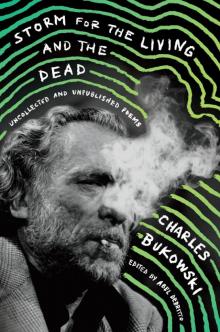 Storm for the Living and the Dead
Storm for the Living and the Dead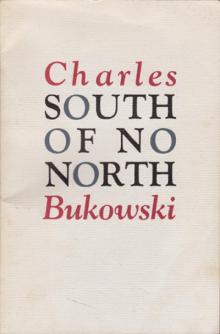 South of No North
South of No North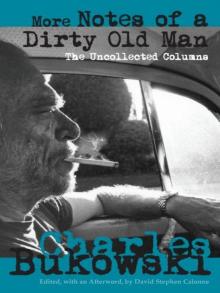 More Notes of a Dirty Old Man: The Uncollected Columns
More Notes of a Dirty Old Man: The Uncollected Columns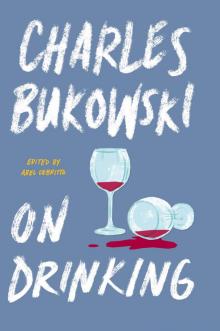 On Drinking
On Drinking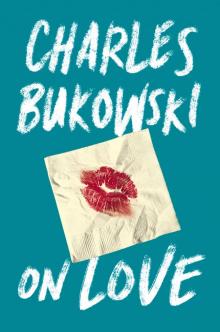 On Love
On Love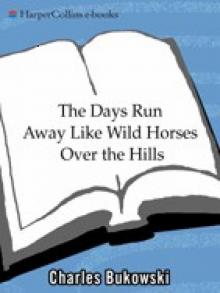 The Days Run Away Like Wild Horses
The Days Run Away Like Wild Horses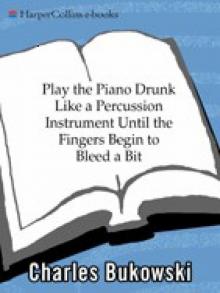 Play the Piano
Play the Piano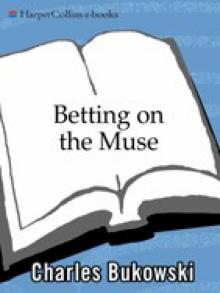 Betting on the Muse
Betting on the Muse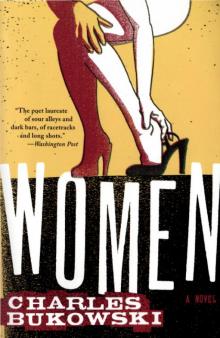 Women
Women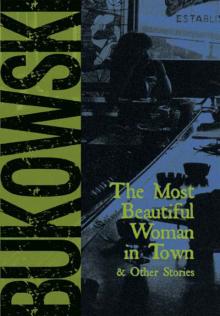 The Most Beautiful Woman in Town
The Most Beautiful Woman in Town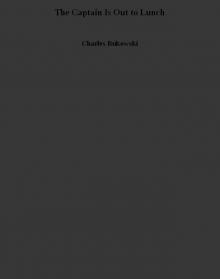 The Captain Is Out to Lunch
The Captain Is Out to Lunch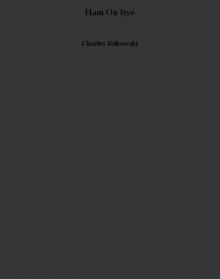 Ham On Rye
Ham On Rye New Poems Book Three
New Poems Book Three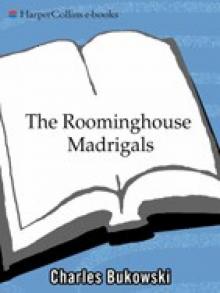 The Roominghouse Madrigals
The Roominghouse Madrigals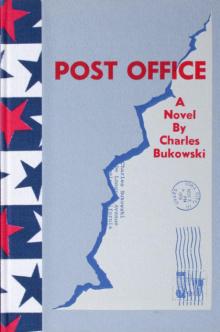 Post Office
Post Office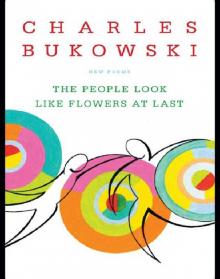 The People Look Like Flowers At Last
The People Look Like Flowers At Last